materials.CHEMISTRY.biology
RESEARCH AREAS
The Zhang group aims to address biological and medical problem using a macromolecular approach. Our underpinning expertise is polymer chemistry, nucleic acid chemistry, and nanobiotechnology. Using a range of polymerization reactions, colloidal syntheses, and bioconjugation techniques, we explore the interface of materials science with chemistry and biology by creating functional and hierarchical nanostructures from relatively simple starting materials. We are equally interested in exploring the chemistry to achieve these interesting structures, as well as in pushing them as far as possible towards real-world translation. The ultimate goal is to build a scientific base for the synthesis of complex polymeric materials with specific properties that can be applied to meet biomedical challenges, such as as gene regulation therapies and medical diagnostics.
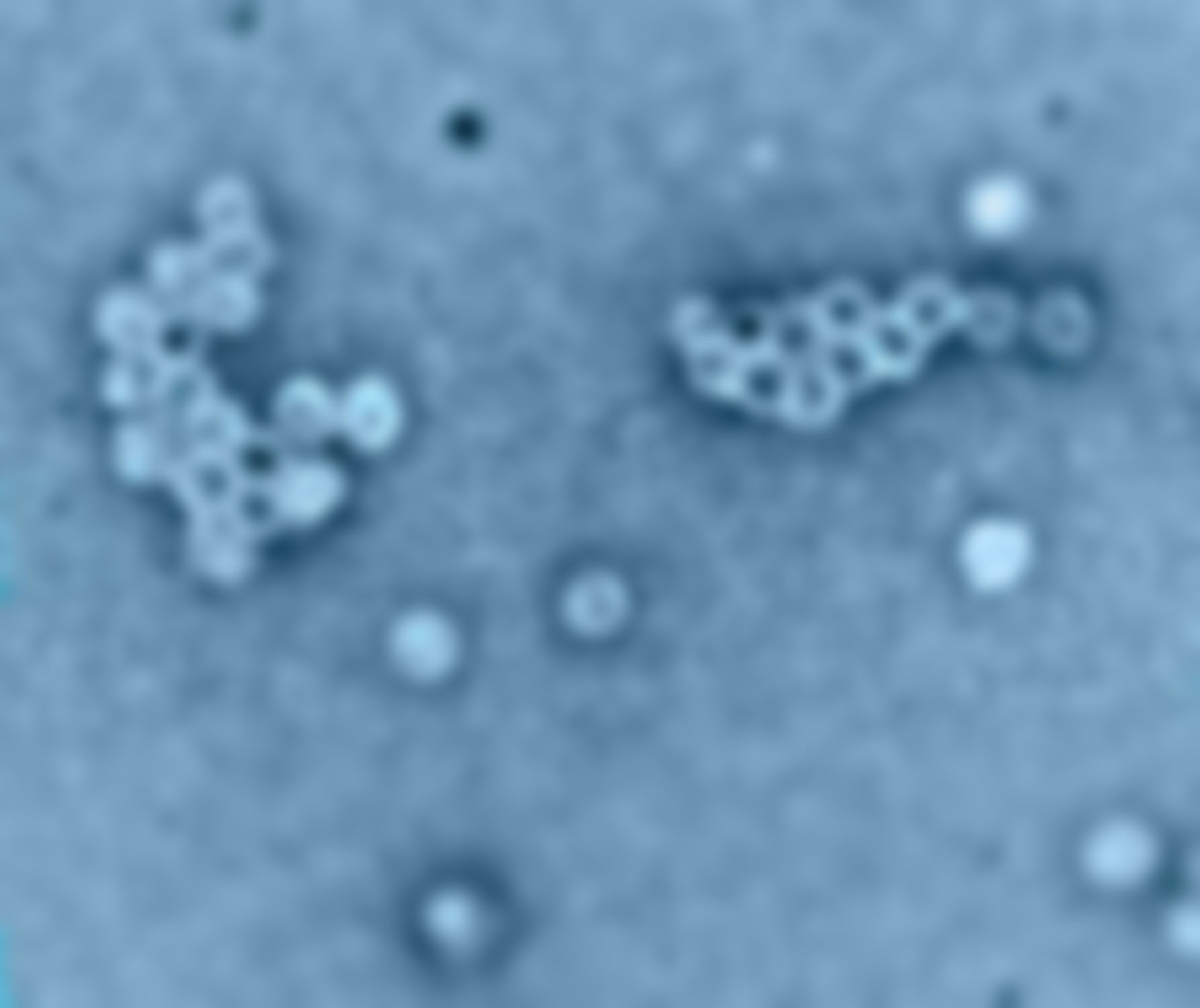
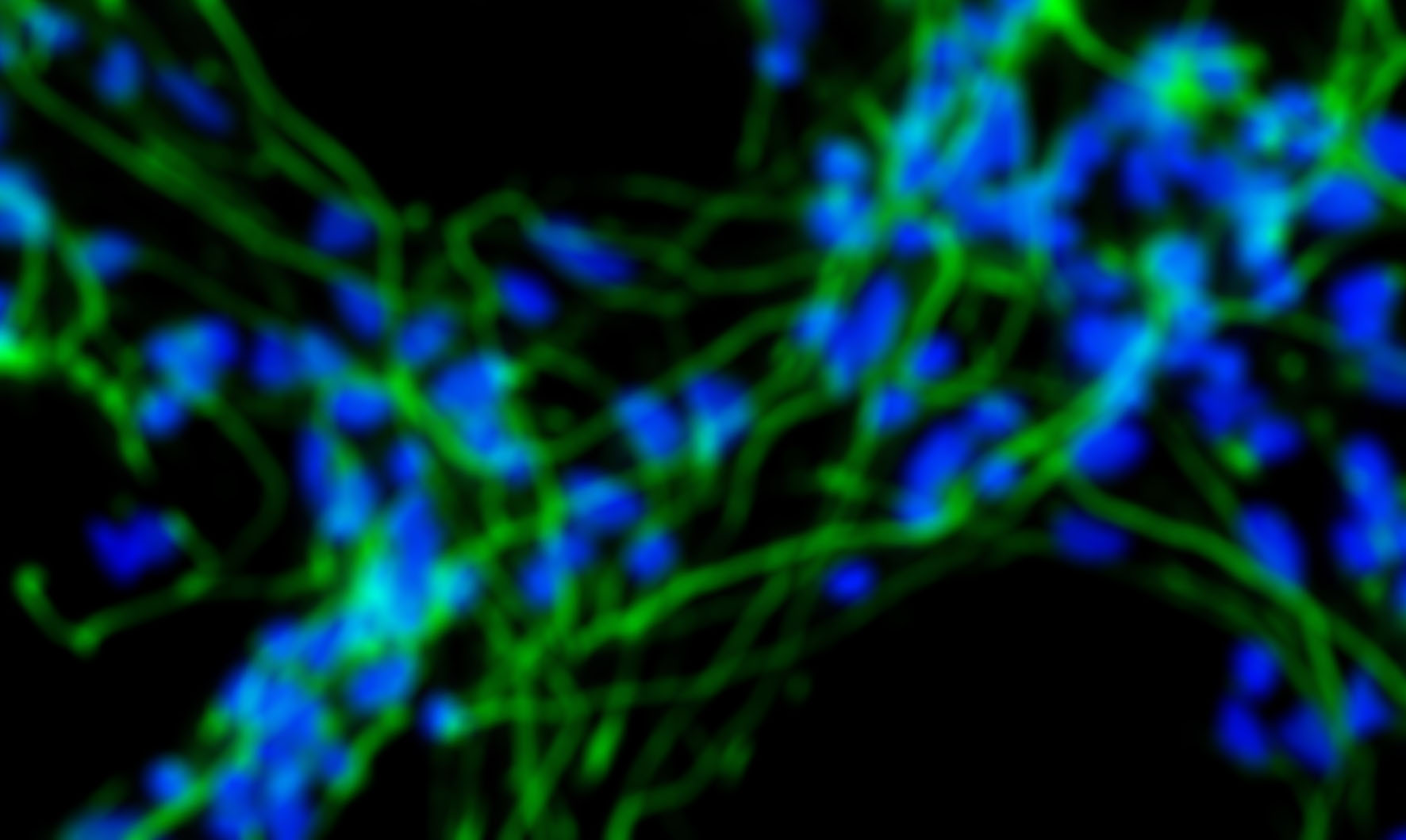

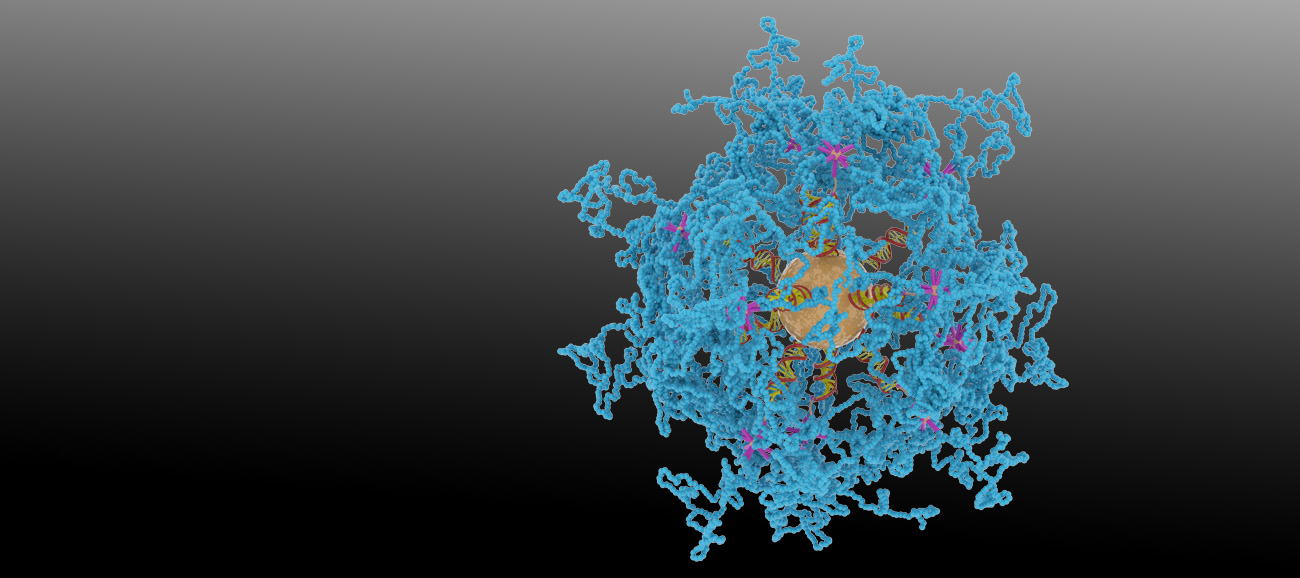
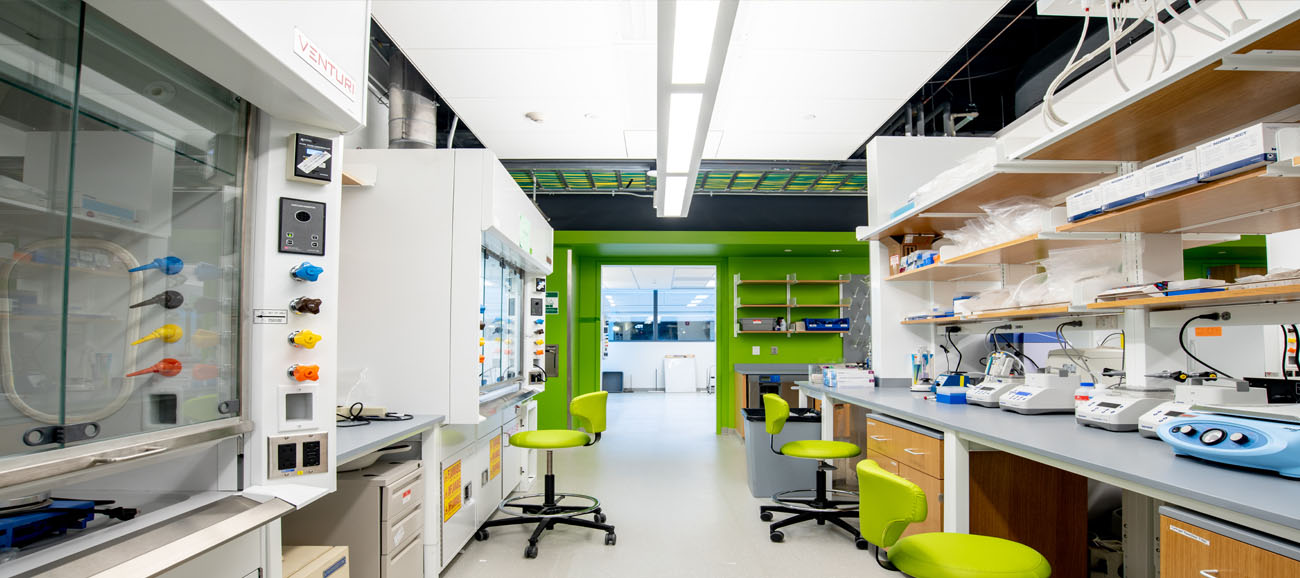
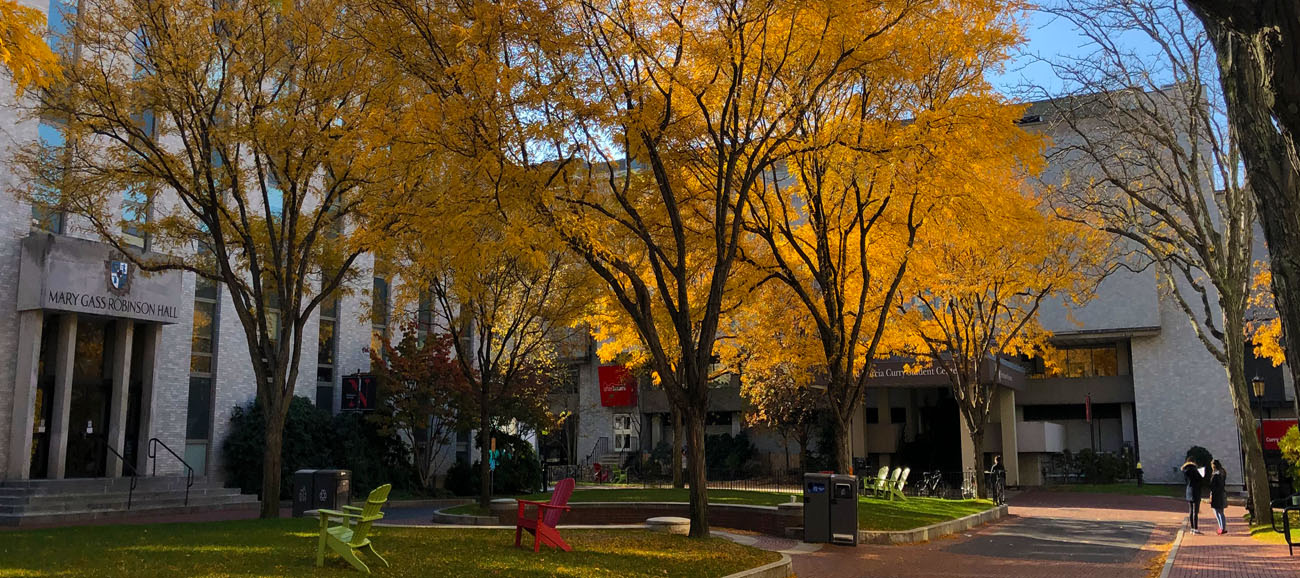
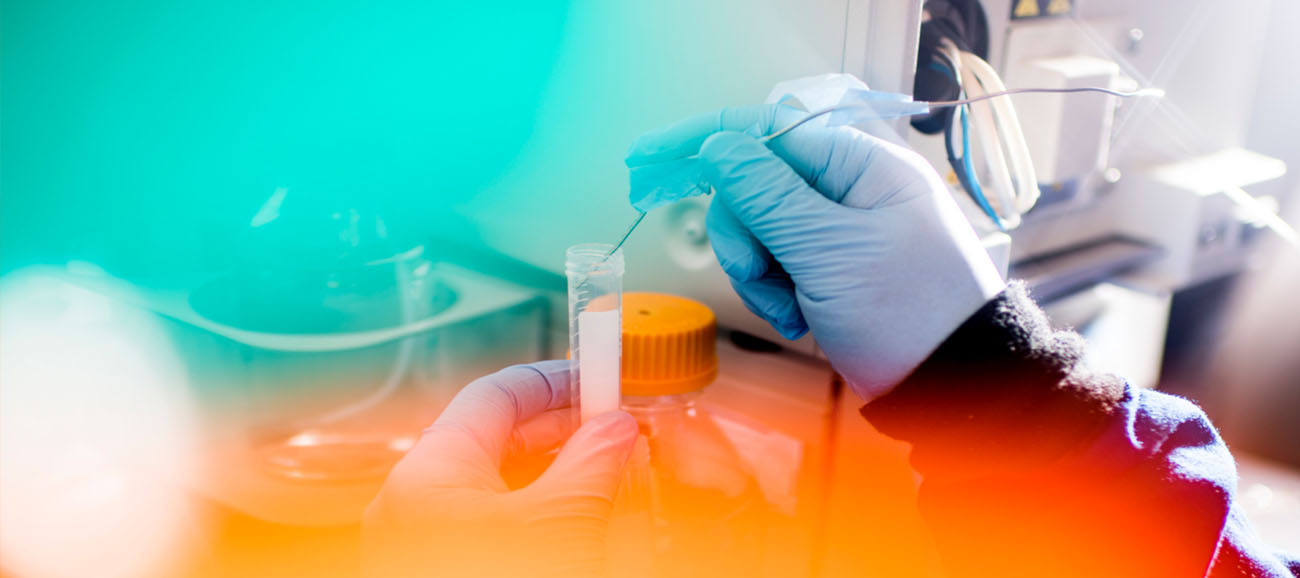
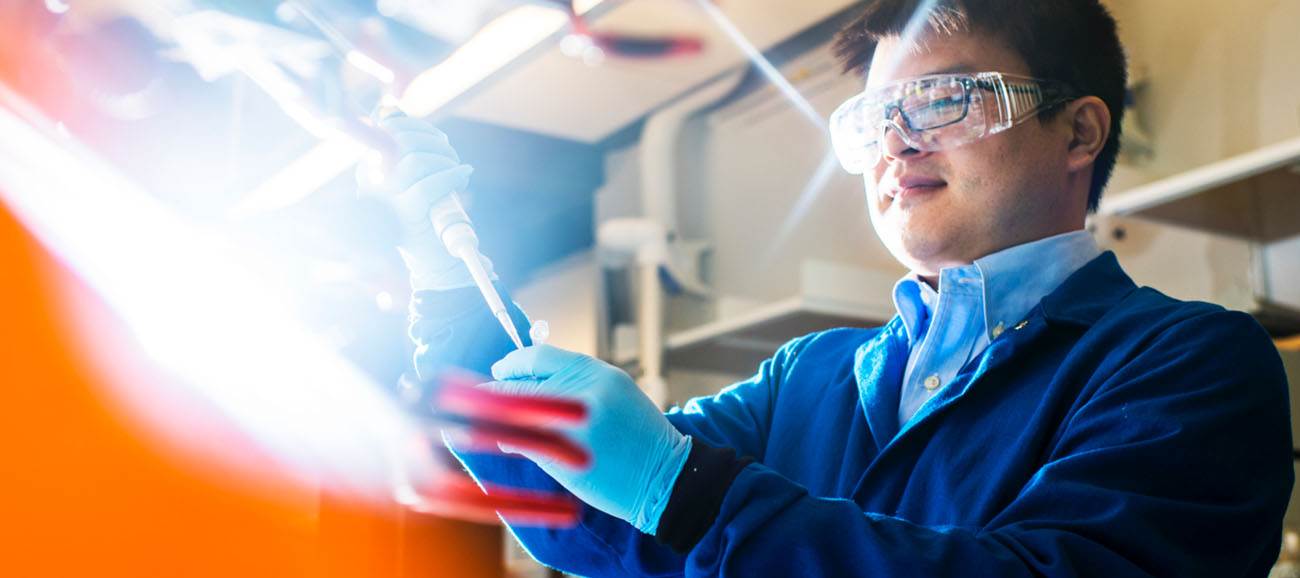






Polymer chemistry at the bio-materials interface
The Zhang Group
@ Northeastern University
novel Oligonucleotide Delivery Systems
We are particularly interested in a form of polymer-oligonucleotide conjugate, termed pacDNA, as a single-entity gene regulation agent. These macromolecules consist of bottlebrush- or star-architectured polymers surrounding one or a few strands of oligonucleotides. Like a sea anemone providing shelter to a clown fish, the polymer chains block unwanted interaction of the oligonucleotide from its surroundings but allow it hybridize normally. This molecular "symbiosis" greatly improves the biopharmaceutical properties of the oligonucleotide, and we are exploring the potential of this technology for the development of nucleic acid drugs.
merging Nucleic acids and polymer science
We develop new methods to integrate DNA with polymers to achieve functional materials. One aspect of this effort is to adopt DNA as a chemical bond-equivalent, which assemble different macromolecules and even inorganic particles in a sequence-defined manner through hybridization. Another aspect involves using DNA as building blocks (macromonomers, chain-transfer agent, etc.) in traditional polymer chemistry as a way to organize DNA or to incorporate DNA with materials. A third aspect involves DNA block copolymers, which we are developing as drug-DNA codelivery vehicles. By tapping into polymer science, the possibilities and potential applications of DNA will expand exponentially.
stimuli-responsive polymers
Our current focus is on self-immolative polymers (SIPs), a class of thermodynamically unstable polymers at room temperature that can undergo rapid depolymerization once a chemical trigger is applied. We study the polymerization, depolymerization, and the various structures and chemistries associated with this class of materials, with the aim of adopting them in materials- and bio-sciences.
We gratefully acknowledge funding from:






Department of Chemistry and Chemical Biology
Northeastern University
360 Huntington Avenue
Boston, MA 02115
Email: k.zhang (at) neu.edu Office: 617-373-7089
Last Updated: Jan 2024